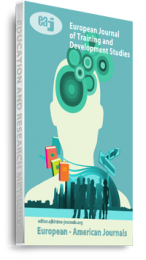Public Health is one of the Schools in the College of Health Sciences of Moi University, which offers training for health professionals. The paradigm shift from traditional instructional methods to innovative instructional methods has been emphasized in the College in a bid to respond to challenges and trends in health professions’ training and education in the 21st century. The innovative instructional mode of teaching was adopted in the college of Health Sciences in 1998. However, the level of challenges experienced by both the students and lecturers in implementation of these methods have not been investigated. Therefore, the study sought to establish the challenges faced in the use of innovative instructional methods in Public Health Programme. Mixed method approach was used in this study involving the use of both quantitative and qualitative strategies. This was aimed at providing a comprehensive analysis of the research problem. The quantitative strategy (cross-sectional survey research) was used to gather numeric descriptions of level of knowledge of innovative instructional methods among a sample of lecturers. The qualitative strategy (phenomenological research) was used to identify students and lectures experiences about determinants of use of innovative instructional methods. Pre-tested structured and unstructured sets of questionnaire were administered to students and lecturers of the school of Public Health. Structured interview was conducted among a sample of members of the management team including the Dean School of Public Health and heads of various departments. An observational checklist was used to assess the adequacy of infrastructure and availability of instructional materials. All the lecturers and most of the students affirmed that there were challenges experienced in the use of innovative instructional methods. The challenges ranked in order of their seriousness from the most to least serious are: large classes; less resource allocation; lack of facilities for example, rooms, research centre; lack of technical knowledge (skills) on the use of instructional methods, and less training for personnel, among others. From the study findings and conclusion, it is recommended that the University’s School of Public Health needs to address the main factors like funding that hinder use of innovative instructional methods in implementation of Public Health Programme.
Keywords:

